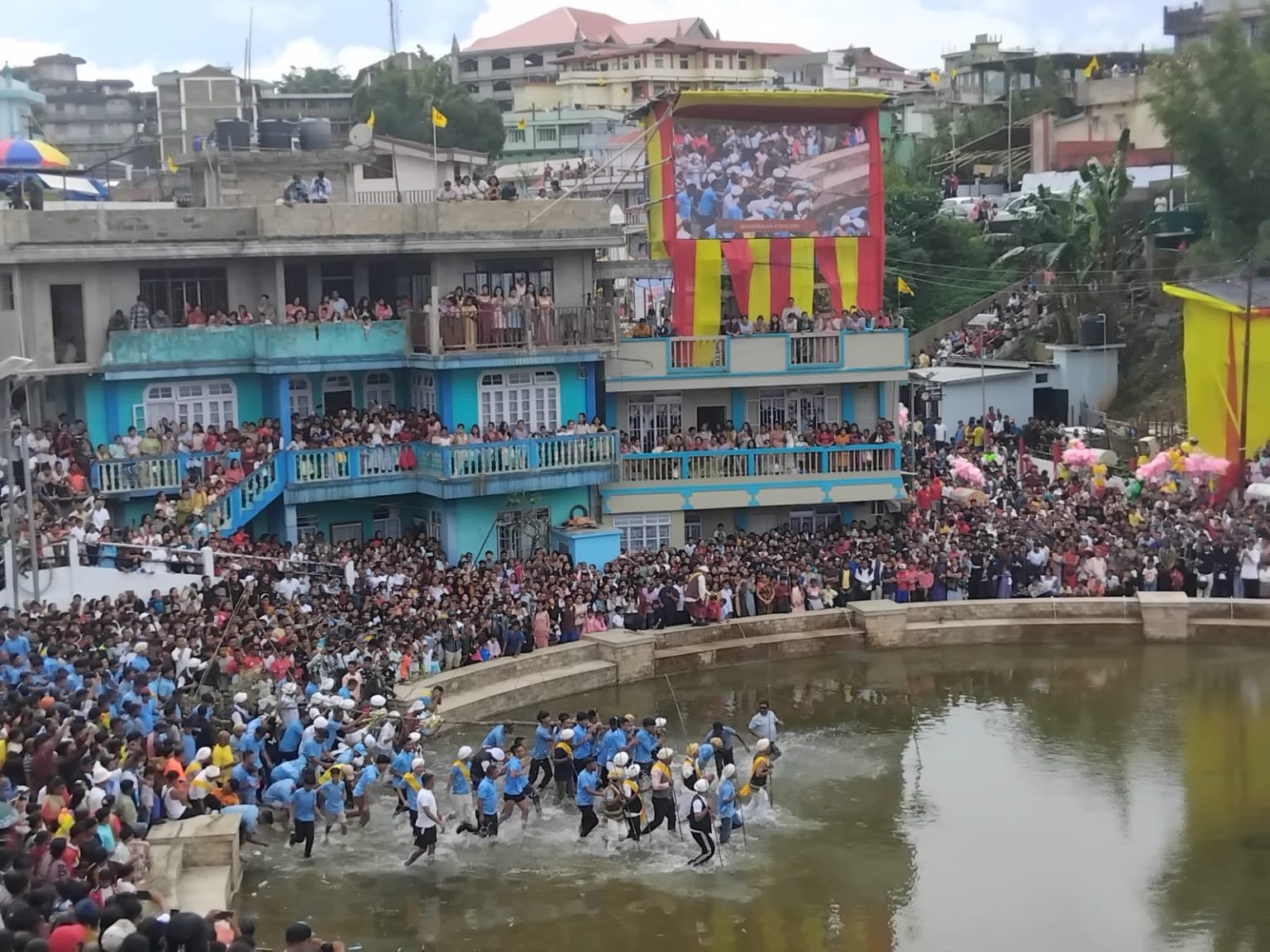Behdeinkhlam Festival

- 17 Jul 2025
In News:
The Behdeinkhlam Festival, a vibrant cultural and religious celebration of the Pnar community in Jowai, Meghalaya, was recently observed with great enthusiasm. Blending age-old indigenous rituals with contemporary social messages, the festival reflects the rich cultural heritage and evolving societal concerns of the Jaintia Hills region.
Etymology and Meaning
- The term “Behdeinkhlam” comes from the Pnar language:
- “Beh Dien” – to drive away with sticks or prayers.
- “Khlam” – refers to plague, pestilence, or disease.
- Thus, the name signifies a ritual expulsion of illness, evil spirits, and misfortune, historically associated with diseases like cholera.
Cultural and Religious Significance
- Primarily celebrated by the Pnars, a sub-tribe of the Jaintia community, the festival is a symbolic act of:
- Protecting society from disease.
- Invoking blessings for a bountiful harvest.
- Promoting community health, peace, and prosperity.
- It plays a crucial role in preserving the Niamtre faith, the indigenous religion of the Jaintia people, through intergenerational participation in ritual practices.
Timing and Duration
- Held annually in July, right after the sowing season, the festival lasts for three days.
- The timing is agriculturally significant, linking health rituals with hopes for a successful farming cycle.
Key Rituals and Celebrations
- Symbolic Rituals:
- Men go around beating the roofs of houses with bamboo poles to drive away evil spirits and symbolic disease.
- Tree trunks known as Dein Khlam and Khnong—rounded, straight, and polished—are brought from the forest and used in the main rituals.
- Community Processions:
- A sacred wooden post called Symbud Khnong is carried around the town and installed as a spiritual safeguard.
- Gender Roles in Rituals:
- Men perform dances, carry the sacred logs, and lead the processions.
- Women play a vital ceremonial role by preparing sacrificial food for ancestral spirits.
- Dance and Music: On the final day, the community gathers at Aitnar, where both young and old dance to the rhythmic beats of pipes and drums.
- Dad-Lawakor – Traditional Game: A unique football-like game called Dad-lawakor is played at Mynthong, showcasing indigenous sporting traditions and community bonding.
Contemporary Relevance
- In recent years, the festival has evolved to incorporate modern themes such as:
- Awareness against drug abuse
- Prevention of alcoholism
- Climate change consciousness
- These additions reflect a harmonious blending of tradition and modernity, where festivals serve both spiritual and civic functions.
